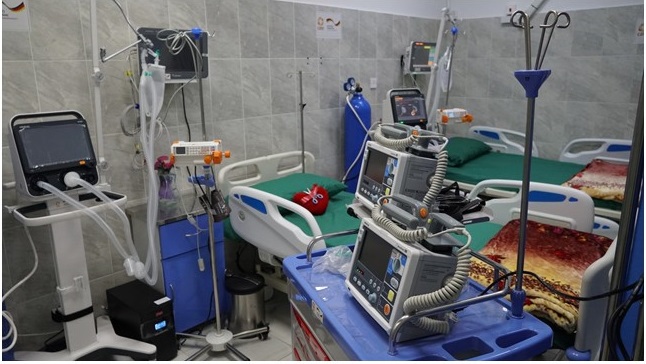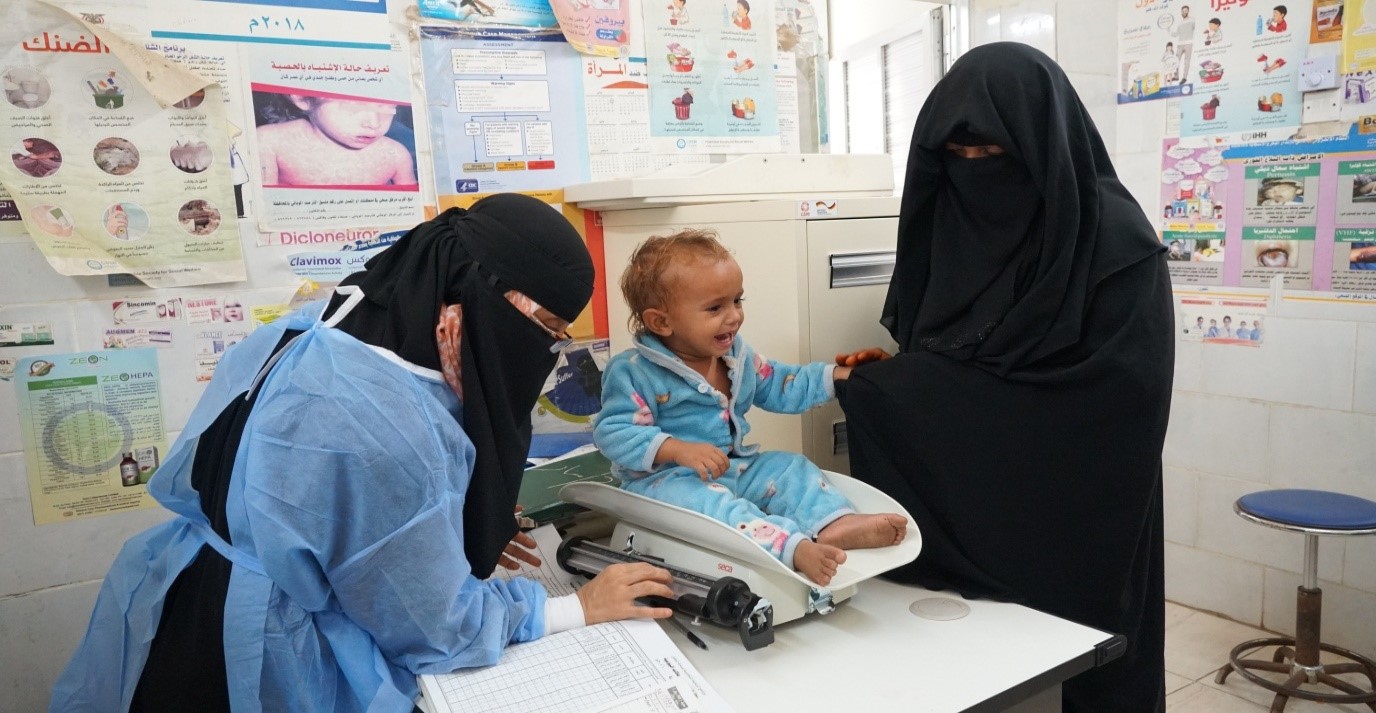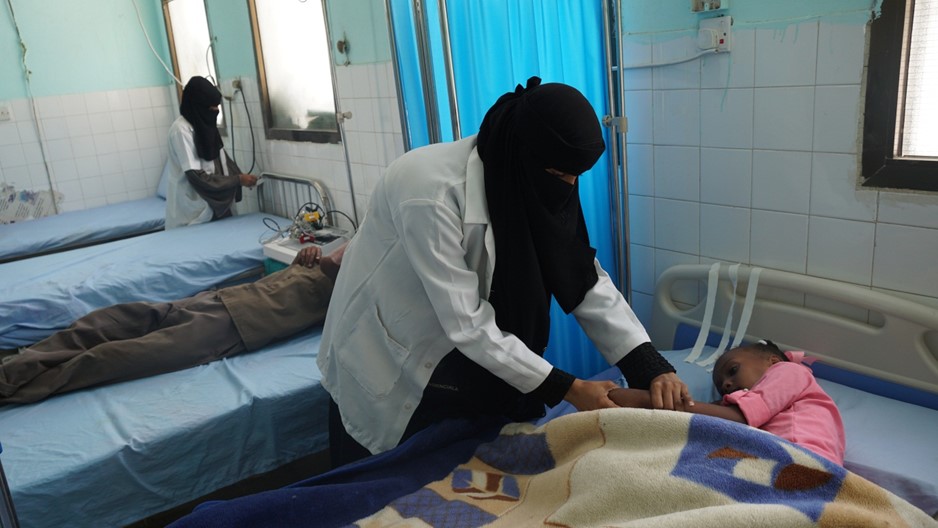Eighty percent of Yemeni people live below the poverty line and the grinding protracted Yemen conflict has devastated the health system. Only half of all health facilities across the country are fully functioning, while 20 million people are in need of health services. The lack of supplies, as well as equipment, operational costs and irregular payment salaries, hinders health staff’s ability to provide proper health care and puts the lives of millions at risk.
An estimated 5 million women and girls of childbearing age, and 1.7 million pregnant and breastfeeding women, have limited or no access to reproductive health services. Poor coverage, lack of specialized staff, lack of essential medical supplies and a lack of female doctors affect maternal health-seeking behaviour, particularly for the 75 percent of Yemeni women in rural areas. In 2020, COVID-19 placed additional pressure on the already crumbling facilities, which further complicated the delivery of reproductive health services. Roughly 15 percent of the functioning health systems were repurposed for COVID-19 treatment.
Balqis Hammoud, 32 years old, works as a nurse at the Hashid medical centre in Mansoura district of Aden governorate. When she was a young girl, Balqis’s dream was to become a doctor and save lives. Unfortunately, she didn’t get the required scores for medical school, so instead she trained to become a nurse. At that time, Balqis didn’t realize that nurses like her could save the lives of many women who were cut off from reproductive health services because of the conflict.
“The emergency obstetric unit in the Hashid health centre was closed due to the conflict and the resulting economic collapse,” says Balqis. “Due to the lack of funds and equipment and medicines, we couldn’t provide reproductive health care for women in need. I still recall the massive inquiries from our female patients asking about the suspended services, which was very frustrating for me. And when the Covid pandemic aggravated the situation we sent a lot of distress calls to relevant agencies to help us to reduce the catastrophic impact of cutting services.”
Yemeni women of childbearing age, particularly pregnant and lactating women, have limited or no access to life-saving reproductive health services, including antenatal care, safe delivery, postnatal care, family planning, emergency obstetric and new-born care. Many women in rural areas resorted to visiting private clinics and midwives. Due to the Covid outbreak, a huge portion of private clinics and midwives stopped providing services due to the fear of infection and the lack of personal protective equipment.
“There are so many things that people around the world take for granted, while they are considered as an unreachable luxury for Yemenis,” says Rajaa Massad, a 50-year-old anaesthetist from Sirah district of Aden governorate. “As we struggle to get the most basic needs, our right to health is compromised.” As the manager of the emergency obstetric centre in Al Shaab hospital in Sirah district, Rajaa is concerned that new-borns in Yemen won’t be able to make it through this hard life.
“One day, a pregnant woman came to the centre to give birth to her baby,” says Rajaa. “The woman was suffering from serious complications. Despite our keen care, the mother had a haemorrhage that we couldn’t stop due to the lack of an obstetric emergency department in the centre. Eventually, we decided to transfer her to Al Sadaqa Hospital, which is an hour and a half away. That poor woman couldn’t survive both the haemorrhage and the long distance and passed away after surgery to remove her uterus in Al Sadaqa Hospital.”
Despite all these challenges, female health workers remained determined to help women and new-borns and provide reproductive health services, yet the funding crisis exacerbated the risk of suspending the provision of reproductive health services in Aden.
To address these challenges, CARE partnered with Germany’s Federal Ministry for Economic Cooperation (BMZ) to establish obstetric emergency departments, as well as Covid reception departments, in ten health facilities in Aden governorate. The project provided much-needed items such as medical devices, equipment, furniture, logistical supplies, and medicines.





